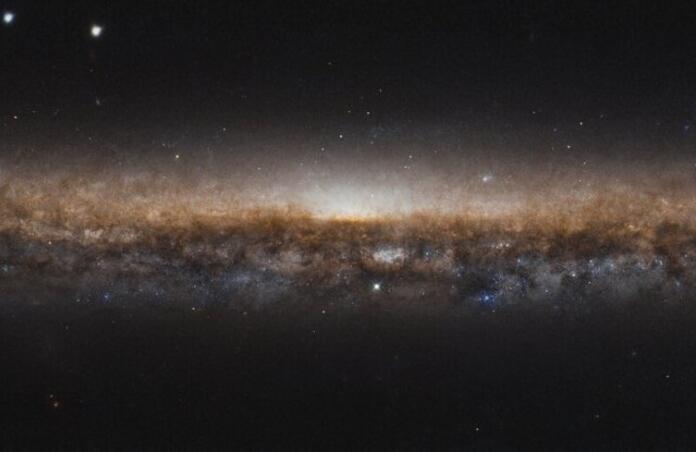Hubble Telescope Captures Edge-On View of Spiral Galaxy

Hubble recently captured an image of a distant spiral galaxy—but, instead of seeing its massive spiral arms, we have a direct edge-on view.
NGC 5907, also known as the Knife Edge Galaxy, is 50 million light-years from Earth in the constellation Draco. This new image from Hubble, which was processed by citizen scientist Judy Schmidt, offers a much different angle than one expects when thinking of spiral galaxies. From Earth, we can only see NGC 5907 from its side—which is how it got its name. The galaxy appears as a massive line of dust and stars stretching across space, not quite as illustrious as viewing its vast spiral arms, but still remarkable to study and admire.
NGC 5907: The Knife Edge Galaxy
Despite only being able to see its edge, scientists can identify it as a spiral galaxy because of its characteristics, primarily its glowing center. The bright glow emanating from within is known as a galactic bulge containing extremely dense stars tightly grouped together. Most spiral galaxies, including the Milky Way, have a galactic bulge, making it a clear type indicator.

Around the galaxy orbits dozens of ancient stars in large spacious loops—which have orbits spanning nearly 700,000 light-years. Scientists believe these stars are remnants from a violent encounter (and merger) with a small dwarf galaxy over four billion years ago. However, the exact reason these stars are taking a long trip around the galaxy is still up for debate. A competing hypothesis suggests NGC 5907 merged with a similarly sized galaxy 8 to 9 billion years ago, while another suggests it had an encounter with a “tidally disrupting satellite” that pulled the stars into the wide orbit. More research is needed to provide a definitive answer, but all of the possibilities offer an exciting insight into the Knife Edge Galaxy's turbulent past.